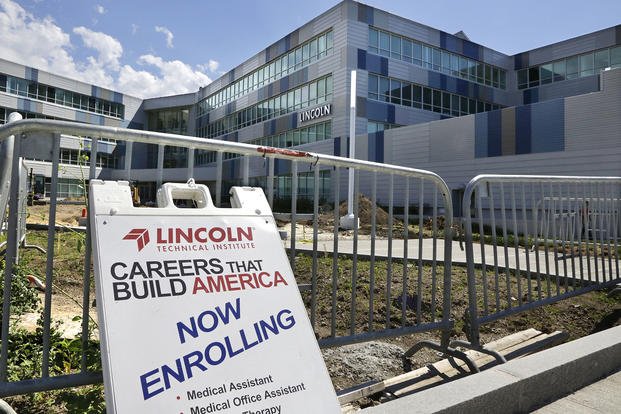The phone rings and a telemarketer pitches you steady work after you graduate from the technical school they represent. A billboard promises a world of opportunities with a certificate from a retraining program at a private business school. A friend raves about how a vocational program in allied health has brought her steady work.
Will completing a course of study offered by a for-profit career college put you on a path to a career change and vocational and financial stability? Hard to say. But this strategy for changing careers is more likely to work if you thoroughly check out the program before you devote valuable time and money to the effort.
These career-training schools -- whether they call themselves trade schools, vocational schools, technical colleges or career colleges -- certainly are needed. "Public two-year and four-year schools don't have sufficient capacity," said Anthony Carnevale, director of the Center on Education and the Workforce at Georgetown University. "These proprietary schools tend to be much more focused on learning that leads to gainful employment in a particular occupation."
And through the deep recession of 2008-2009 and continuing months of high unemployment, many of these schools, which have campuses nationally, have prospered. Revenue at Lincoln Educational, which operates Lincoln Technical Institute, grew from $376 million in 2008 to $552 million in 2009. Similarly, revenue at ITT Educational Services jumped from $869 million in 2007 to $1.3 billion in 2009.
But private career schools' growth doesn't guarantee your success in a new career. "Many of these career colleges and vocational schools are reputable and teach skills that are needed to get jobs; other schools of this type are not to be trusted," said Julian Alssid, executive director of the Workforce Strategy Center in New York City. "The schools that work well have very strong ties to industry, faculty who are industry people and facilities that are up-to-date."
What sorts of claims made by career colleges should you not take at face value? Statements about total tuition costs, accreditation and salary potential should all be questioned, according to a recent undercover investigation of 15 for-profit colleges by the federal Government Accountability Office.
How can you tell a worthwhile vocational program from a dubious one? Here are six expert tips.
1. Before You Go to School, Do Your Homework
"People often put money into education and training before they know if it's worthwhile," Alssid said. "Talk to students of the school and recent graduates. Talk to people working in the field. Connect online." If you really want to know the bottom line, call the human resources departments of a half-dozen prospective employers and ask whether they've hired graduates of the specific program you're considering.
2. Comparison Shop
Don't choose a career school simply because it's the first to approach you with a sales pitch. Shop around and consider lower-cost alternatives like community colleges. Private career schools tend to be dramatically more expensive than their public counterparts. For example, the core 51-week automotive technician program at Universal Technical Institute, a Phoenix-based school that trains automotive and diesel technicians, costs about $25,000; a similar program at a community college is typically $6,000 to $8,000.
"Ask how much the program costs, relative to what you could pay elsewhere for the same training," Carnevale said. "Also compare the cost of the program to the value of what you will learn." Whichever school you choose, learn all you can about government grants and student loans that could help finance your education. The U.S. Department of Education has put for-profit colleges under increased scrutiny due to their graduates' low repayment rates on federal loans, so be sure you have firm commitments from lenders before signing on the dotted line with a career school.
3. Research the Local Job Market
Do federal government statistics say that licensed practical nurses are in high demand? That's nice to hear, but what really matters is whether health-care employers in your area are hiring new LPNs with no work experience. "Look at what's going on in the regional economy," Alssid said.
4. Make Sure the School's Offerings Are Current and Relevant
Does the school you're considering continuously reinvest in its course content and industry connections? "Our curriculum is constantly updated to include the latest technology," said Tina Miller, a spokesperson for Universal Technical Institute. "We have committees that meet to discuss the latest technologies, like alternative-fuel vehicles. And we work directly in partnership with car and truck makers like Nissan, Ford, Cummins and Navistar."
5. Find Out How Prospective Employers Value Fresh Training vs. On-the-Job Experience
In a labor economy where new graduates and experienced workers are available, who will prospective employers choose? "Companies want to keep costs down, so they may go for a more recently trained worker," Alssid said. "But there's an outcry about workers who have the credentials but not the right skills and attitude." Ask local employers about their preferences.
6. Find a Niche
Even though manufacturers have laid off millions, they complain that they can't find enough skilled technicians to operate and maintain the robots and other complex factory technology that have replaced so many workers. You could convert this irony into a career niche -- if you can find a school to teach you the skills. "There's a continuing skills recession, especially in fields like advanced manufacturing," Alssid said. "With research, you may be able to figure out who offers training in these hard-to-find skills."
Want to Know More About the Military?
Be sure to get the latest news about the U.S. military, as well as critical info about how to join and all the benefits of service. Subscribe to Military.com and receive customized updates delivered straight to your inbox.











